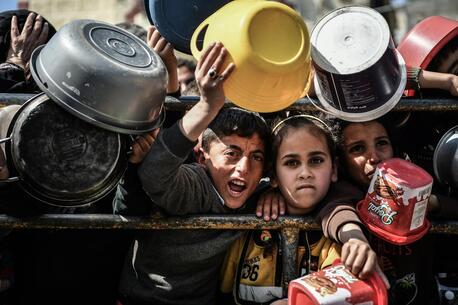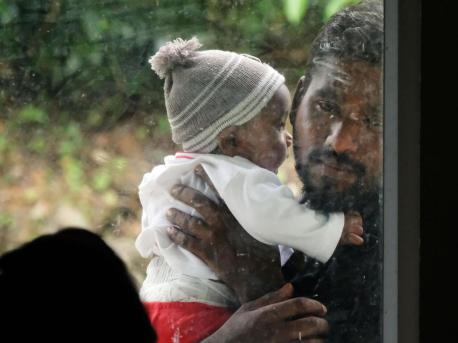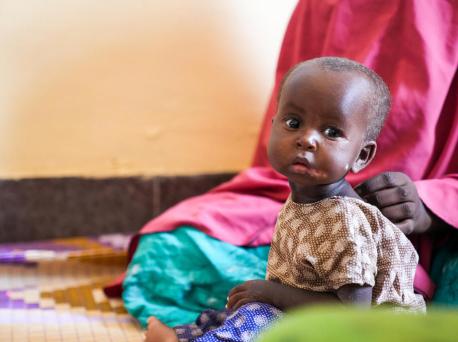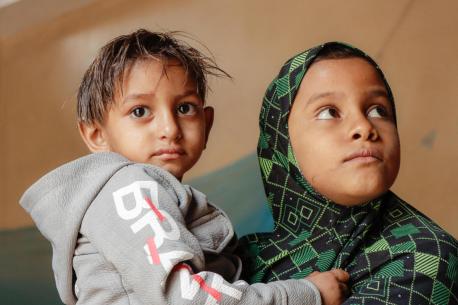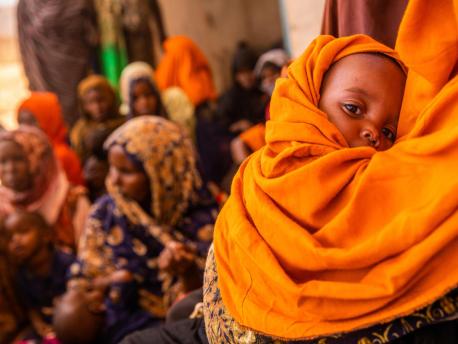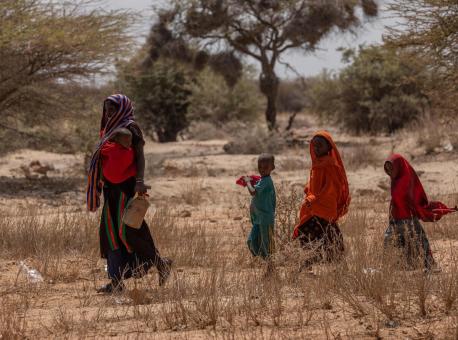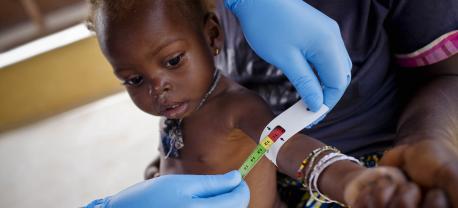
Food Crises
Tens of millions of children are living in severe food insecurity or severe food poverty, their diets limited and lacking in the nutrients they need during early childhood and beyond for healthy growth and development. How UNICEF responds to food crises and fights child malnutrition worldwide.
The combined effects of conflict and climate-driven disasters have pushed the world into an unprecedented food and nutrition crisis.
Among the worst affected regions are the Horn of Africa (Ethiopia, Kenya, Somalia, South Sudan and Sudan) and Central Sahel (Burkina Faso, Chad, Mali, Niger and Nigeria). Other countries suffering high levels of food insecurity include Afghanistan, Democratic Republic of the Congo, Haiti, Madagascar and Yemen.
A 2022 report estimated that 8 million children in those 15 countries were suffering from severe wasting; over 27 million children were living in severe food insecurity; and over 40 million children are living in severe food poverty, with limited diets that lack nutrition required during early childhood for healthy growth and development.
A 2024 report by the Global Network Against Food Crises — of which UNICEF is a part — estimated that worldwide, there were 36 million acutely malnourished children, noting the sharp deterioration of food security in the Gaza Strip and Sudan.
Undernutrition is linked to nearly half of all deaths of children under age 5
Some 148 million children in the world — about 1 in 5 — are chronically malnourished to some degree. When not addressed, malnutrition puts children at greater risk of dying from common infections, increases the frequency and severity of such infections and delays recovery. When a child suffers from malnutrition, the damage can be irreversible — robbing them of the opportunity to reach their full mental and physical potential.
Food crises and threat of famine can also cause displacement, which disrupts lives and interrupts childhoods. Millions of people have been displaced by food crises in recent years.
How UNICEF fights malnutrition worldwide
UNICEF works with partners to deliver humanitarian assistance to those impacted by food crises through a range of interventions, including:
- screening and treating children for malnutrition
- providing safe water, sanitation and hygiene services to communities where these basic resources are in short supply
- providing cash to families along with nutrition counseling
UNICEF procures 75 to 80 percent of the world's supply of Ready-to-Use Therapeutic Food, a treatment for children suffering from severe acute malnutrition, which is life-threatening.
UNICEF leads the global nutrition emergency preparedness and response efforts, coordinating with partners to reach the most vulnerable children and families in the hardest-to-reach areas. UNICEF also works with governments to strengthen local health and nutrition systems to reduce risks of malnutrition before, during and after a crisis.
UNICEF's No Time to Waste initiative aims to accelerate the global response to the malnutrition crisis. Learn more.
UNICEF’s goal is to protect and promote diets, services and practices for the early prevention, detection and treatment of child wasting — an extreme form of malnutrition. Learn more about UNICEF's nutrition programs.
Help UNICEF save children’s lives. A donation of $100 can provide a two-month supply of Ready-to-Use Therapeutic Food — enough to bring a severely malnourished child back to health.
